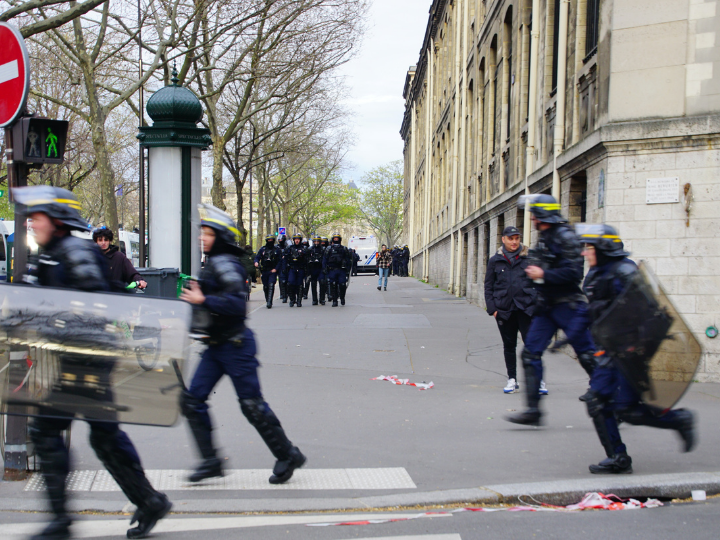by N. Peter Kramer
Recent history learns that voters get tired of their leaders, after one term it is may be still an exception, but after two or three it looks quite ‘normal’ nowadays, see for example Tony Blair, Gerhard Schröder and even Berlusconi.
It is interesting to read a just published report about Russia by Pew Research Center. This leading institute, based in Washington DC and Democratic Party leaning, concluded on base of a nationwide survey that: ‘following a winter of discontent, Russians express an increased appetite for political freedom and at the same time strongly endorse Vladimir Putin’!
The poll finds a number of indicators of support for the status quo. Most notably, 72% of Russians voice a favorable opinion of Vladimir Putin, while almost as many hold a positive opinion of Dmitri Medvedev (67%). Putin’s popularity is being fueled more by views of the economy and perceptions of social mobility than it is being hurt by democratic aspirations. Among the presidential candidates this spring, Putin is the only one viewed favorably by a majority of Russians. Putin’s base of support is broad, although he is especially popular among women, Russians ages 30-49 and those with less than a secondary education. To the degree that democratic leanings help shape attitudes toward Putin, those who say an uncensored media is important are less likely to have a favorable opinion of Russia’s long-time leader.
Further, as they have for most of the post-Soviet era, a majority of Russians continue to feel that relying on a leader with a strong hand in order to solve problems is more important than relying on a democratic form of government (57% vs. 32%). In addition, strong majorities say it is very important to live in a country where there is law and order (75%) and economic prosperity (71%). In fact, three-quarters (75%) say they would choose a strong economy over a good democracy.
On the other hand, compared with just a few years ago, the report says, that more Russians believe that voting gives people like themselves an opportunity to express their opinion about the country’s governance; more feel that it is important to be able to openly criticize the government and greater numbers see freedom of the press and honest elections as very important. A solid majority (64%) see attending protests as an opportunity to speak out about how the government is run, and more than half (56%) specifically approve of the mass demonstrations that followed the December parliamentary vote, which was marred by fraud allegations.
Some other interesting outcomes of the Pew survey* of 1,000 adults in Russia, conducted between March 19 and April 4, 2012, are:
• Since 2002, five of six measures of democratic freedom have witnessed double-digit increases in terms of the percentage of Russians describing them as “very important.” They are: honest elections, religious freedom, uncensored media, free speech and a civilian-controlled military. However, relatively few Russians see these as a reality. Roughly one-in-five or fewer say a fair judiciary (17%), honest elections (16%), uncensored media (15%) and civilian-controlled military (14%) describe Russia very well.
• In 1991, when Russians were first asked if voting gave people a voice, opinion was divided: 47% said yes, while 43% said no. By 2009, the public had actually soured somewhat toward the ballot box, with 44% saying their vote mattered and more than half (54%) saying it did not. But this spring there seems to be a renewed conviction that casting one’s vote matters – a 56%-majority now believes this to be true. Just over a third (37%) disagrees.
• While a modest 56%-majority says they are satisfied with the outcome of the March 4 presidential election, just 47% believe that the election was fair. Not surprisingly, reaction to the election results is especially positive among Russians who hold a favorable opinion of Putin (71% satisfied) and those who feel they are better off financially than they were five years ago (71% satisfied).
• More Russians today (46%) than at any point since 2008 say things are going well in their country, but worries persist. In particular, a majority (64%) continues to describe the economy as poor. Internationally, meanwhile, Russians show signs of insecurity. Slightly more than half (55%) believe their country is generally disliked by other countries – an increase of eight percentage points since 2010.
Putin’s shoring up of his popularity
The size of the marches has shrunk since December when the largest anti-Kremlin demonstration since the beginning of the nineties gathered more than 100.00 protesters, but the causes of the protest have not. Anti-Putin opposition leaders as Boris Nemtsov and Alexei Navalny have not managed to present an alternative. The public mistrusts much of the opposition which is too closely associated with the Yeltsin years when democratisation of Russia started but also a liberalisation process that oligarchs, many of them living in the safe haven the UK is offering them, were massively enriched by a privatisation of state companies and private property ended up concentrated into few hands.
Also among critics of the anti-Putin opposition weariness is growing. Maksim Shevchenko, a television journalist, told the FT: ‘I consider Putin to be an effective crisis manager who pulled the country out of a crisis in which we were threatened by the collapse of the state. Now he needs to find a balance between managing the country and allowing it to develop’.
To shore up his popularity President Putin started his new term the same way as his fresh colleague in France, Francois Hollande, did, with keeping campaign pledges for additional government spending. The Russian President also took an assertive stand in foreign policy with his role in the Syrian crisis, by refusing to endorse UN sanctions against Damascus. This has played well in Russia, where voters like to see their leaders standing up to ‘the West’.
* For the full report, visit http://pewglobal.org/




 By: N. Peter Kramer
By: N. Peter Kramer
